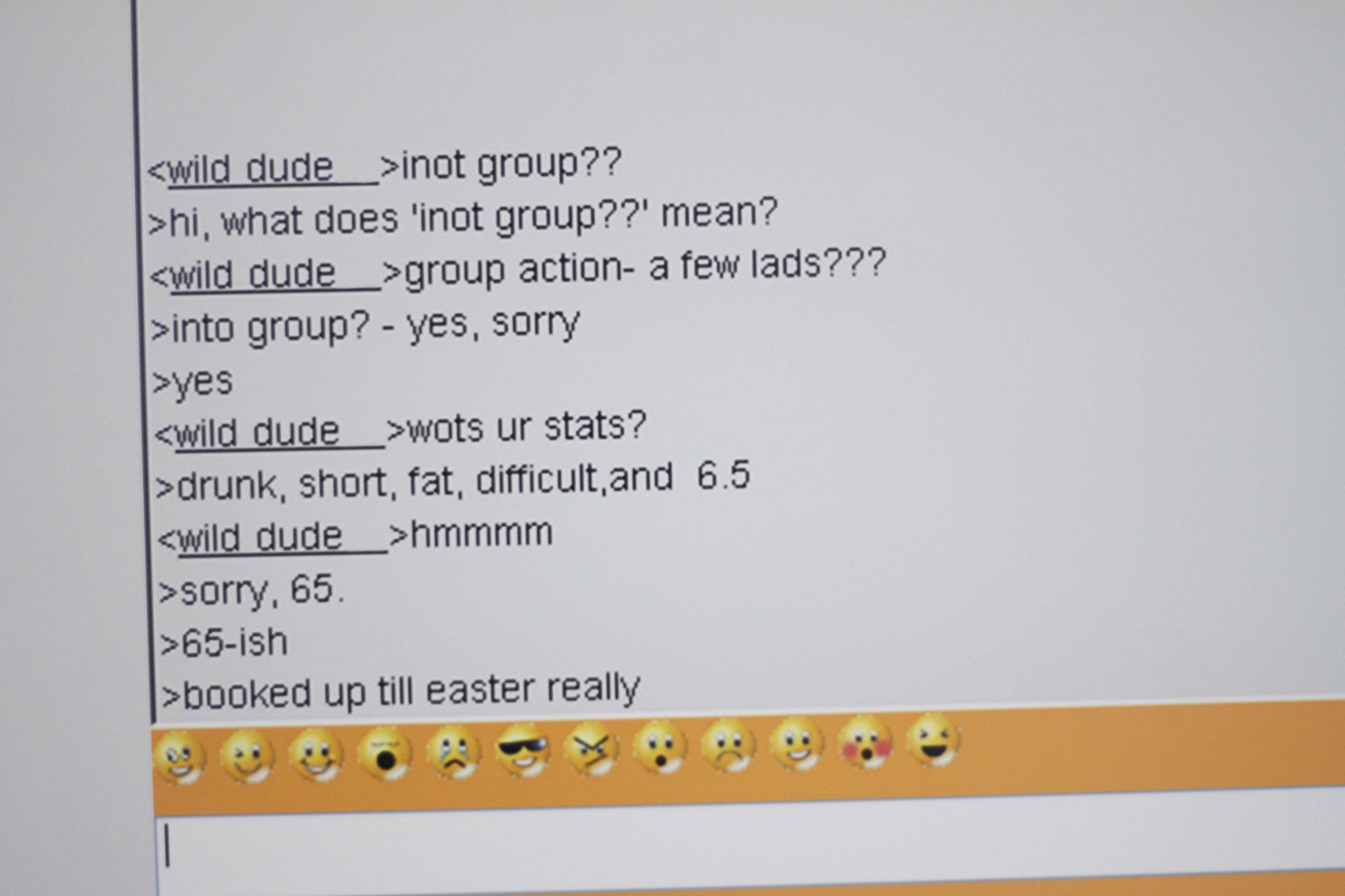At a moment when so-called International Art English and its handlers are experiencing a hopefully healing cautiousness – provoked by various recent critical assaults on insular art writing – a text-art show sits up particularly sweetly, not least because it offers to describe itself. This is such a show, presided over by two major text-led works as well as a sense that there may indeed be a language of art outside of IAE that could interest writers and readers: and given that we live in the empire of the computer screen, doesn’t that potentially include all of us?
If only the artist could attract some attention in the first place, since Some Songs Are Sung Slower is as clamorous and multivoiced as a gay chatroom. Confession: here I’m using guesswork, coupled with evidence: the show’s massive enlargements of Java chat applets from gay chatrooms, wherein characters attempt to clarify their value in monospaced type. ‘wots ur stats?’ enquires wild_dude. ‘drunk, short, fat, difficult and 6.5’, answers our hero.
Other attempted contacts are equally and pointedly doomed. The Seminar (2013) is a monochrome text work (in Courier font) projected in a darkened chamber, in which, via lines of writing, a dry, insistent voice recounts the triumphs and failures of a seminar group at the Graduate School of Creative Arts and Media (GradCAM), in Dublin, considering the subject of death. This was not terribly well attended, at least at first, we learn, before the rhythmic, changing line of words talks us gently through approaches to approaching extinction in a manner that would intrigue the First Committee of the International Necronautical Society. The art on show elsewhere, covering four years of production, encompasses pop music played at unneighbourly volume and video displayed in an unfriendly, unwinning manner: a tight ring of laptops on the floor. So it remains the texts that seem electrical, charged, the antique resonances of their letter shapes seeming at least as potent as any pixel.
Wilson can apparently force any idea into the baldest of quotidian English, to the extent of turning critical theory into a kind of Tales of the City (relocated to inner-city Dublin) soap for My Bin Protest (2012), a supercompressed year of narrative told in 30 poster-based scenes, each offering another narrative turn, another related but self-contained tale, each on its own antique French Revolution-style black and white sheet bearing the crest of a severed head, held by the hair.
In this sequence of self-contained moments, we hear the artist and his words formulate the urgency of love, the possibility of society and the rapidity of death, while at the same time living a humane comedy involving waste management and bad manners, in which friendship, poverty, putrefaction and neoliberal urban technocracy embodied in a refuse lorry are the punchlines.
On one pertinent poster, the narrator stays awake through the night in an attempt to discover why his bin is not being emptied, only to discover that while the refuse collectors will happily place the container on their vehicle’s lifting apparatus, a radio signal between the bin and the lorry, and the lorry and a central computer – for reasons unfathomable to all the humans around – deems the load unacceptable and deposits it back on the pavement. What is the role of the citizen here, in an urban landscape where we follow the will and the patterns of machines? Are we like that severed head held aloft, ‘living as the already dead?’ the final poster/scene wonders. ‘Who knows,’ emerges a sort of answer from this brilliant bin opera, ‘but what is that smell?’
This article was first published in the April 2013 issue.
